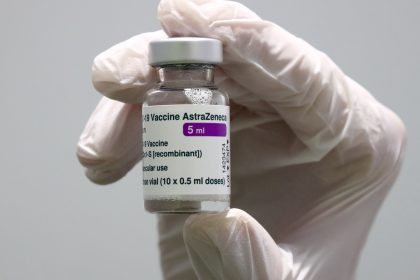Everything You Need to Know About Protein

WASHINGTON — There is a lot of misinformation in the world of nutrition. Macronutrients and calories get demonized while magical supplements promise to help you lose weight. Thankfully, protein stays strong throughout all the wild trends — and for good reason. If you’ve ever been told to get more protein, you may have wondered why.
Here, we will demystify this important macronutrient, explain what it is and how it impacts your health and fitness. We’ll give you some general guidelines on how much protein to aim for and list the best foods to help you reach those goals.
Breaking Down Protein
What is protein, exactly? It’s one of the three macronutrients in all food, along with carbohydrates and fats. All three provide energy and influence your health.
Protein is made up of 20 amino acids, 11 of which are non-essential because your body makes them on its own. The remaining nine are called essential amino acids. Your body can’t make them; you need to get them from your food.
Foods that contain all nine essential amino acids, like most animal-based foods, are considered complete protein or high-quality protein sources. Some plant-based foods do not contain all 20 amino acids, but you can still get everything you need by combining a few of them.
How Protein Affects Your Health and Fitness
Protein influences multiple systems in your body. It’s crucial to your overall health and plays a significant role in exercise.
- Overall Health: Protein is necessary for optimal development, growth and general health for everyone, from young children to older adults.
- Organs and Tissue Function: Protein is essential for maintaining a healthy brain, heart, kidneys, liver, muscles and tissues.
- Heart Health: Healthy protein sources in your diet can help protect your heart health by managing your blood pressure and cholesterol levels.
- Bone Health: Vitamin D, calcium and protein are three nutrients to focus on for strong bones. Plenty of protein can help protect your bone strength and density as you age.
- Immune System: A few amino acids in protein (cysteine, glutamine and arginine) directly affect your immune system. Research shows that insufficient protein can weaken your immune system, making you more prone to illnesses.
- Muscle: Resistance training such as lifting weights or bodyweight exercises break down your muscles. After exercising, eating enough protein repairs your muscle fibers, leading to muscle protein synthesis — or muscle growth.
- Recovery: Protein helps your muscles regenerate and recover from exercise. The next time you go to exercise, you’ll be feeling strong and ready to go.
- Healthy Weight Loss: A high-protein intake can help you lose weight. Here are three ways in which it helps:
- Protein increases satiety, meaning it helps you feel full after you eat it.
- Protein has a high thermic effect — your body has to work harder to digest it, causing you to use more energy.
- Keeping your protein high tells your body to preserve lean muscle as you lose body fat.
Guide to How Much Protein You May Need
Many numbers float around when it comes to how much protein you may need in a day. The answer is: it depends.
According to the Dietary Guidelines for Americans, the U.S. Food and Drug Administration recommends 50 grams of protein as a minimum requirement for bodily functions. People engaging in exercise may need more.
The International Society of Sports Nutrition offers two recommendations, depending on your fitness goal. If you are trying to build and maintain muscle mass with resistance training, they recommend consuming 1.4-2.0 grams of protein per kilogram of body weight daily. (Convert your body weight to kilograms and multiply it by 1.4 to see your minimum recommendation.)
If you are trying to lose body fat, the ISSN suggests aiming for 2.3-3.1 grams of protein per kilogram of body weight per day. This amount may seem high, but it helps you feel full and preserves your muscles.
How to Reach Your Intake Goal
First, find out how much protein you’re currently getting. If you calculate a much higher number, build up slowly. Add an extra 10-20 grams daily for the next week and work your way up.
Research suggests the best way to reach your daily protein goal is to space out your meals or snacks and get 20-40 grams of protein every three to four hours. If you’re moderately active, you can aim for 15-30 grams.
Best High-Protein Foods to Eat
Here are the best high-protein foods to add to your meals or snacks.
Animal-Based Protein Sources
- Poultry: chicken and turkey.
- Lean meat: beef and steak.
- Fish: salmon and tuna.
- Eggs.
- Dairy products: Greek yogurt, cottage cheese and other cheeses.
Plant-Based Protein Sources
- Tofu and tempeh.
- Lentils, chickpeas, beans and edamame.
- Quinoa.
- Other legumes.
- Nuts and seeds.
You can also make a protein shake with a protein powder supplement. If you consume dairy, whey protein is a high-quality option. For a plant-based option, soy protein powder is also a complete protein.
Stay Strong
Protein is about more than building muscle; it influences the health of all your major organs, tissues and systems in your body. Try out a research-backed equation to calculate your daily protein needs. If you are more active, you’ll want to aim higher. Load up your diet with healthy high-protein foods and feel great.
You can reach us at [email protected] and follow us on Facebook and X.

























